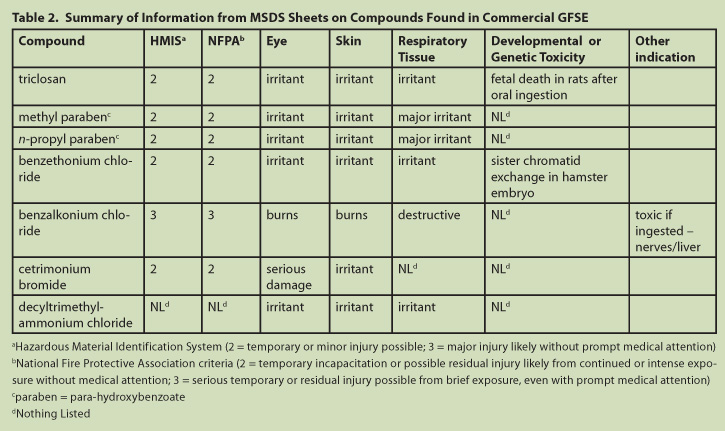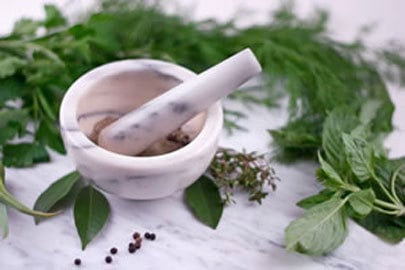A quick post tonight to bring some badly needed information to the dog lovers who read this blog; if you’ve read anywhere that Grapefruit Seed Extract is a good, safe, “natural” product to use with your dogs, think again.
First a rundown on what people use GSE for. It’s been promoted chiefly as an antimicrobial agent, with often lengthy listings of it’s merits (and most of these are anti-bacterial, anti-fungal and antiseptic, but some of the more extreme (and unreliable sites) list “cancer, immune support, anti-viral” as well. To read these pages, you would think GSE is almost a panacea for everything that ails us. Some raw feeders actually soak the meat in a solution containing CSE, ostensibly to kill bacteria, although knowledgeable owners would understand the dogs own GI tract can deal effectively with most of those.
In short, GSE has been touted as a pure, natural safe antibiotic, antifungal, miracle product.
This is not, however, the truth of the matter.
“GSE is not safe to ingest, it’s not safe to put on your skin, and it’s not even safe to use in any manner where it will be released into the environment. Please don’t use it for parasites, don’t use it as an ingredient in “natural detergents” (Bio-Kleen uses GSE), in soaps and by no means expose your infants to it to “fight thrush”. Most GSE is more heavily laden with chemicals than Lysol.”
Jim MacDonald, Michigan herbalist http://www.herbcraft.org/index.htm

Wow – not exactly “natural” – triclosan? Parabens? REALLY?
The bottom line here is, that most commercial products are adulterated, and any that are not, truly don’t have the antimicrobial activity people seek from this product. So in a nutshell, either it’s dangerous because it’s loaded with noxious chemicals, or it’s dangerous in another sense because it doesn’t do what it’s purported to (if unadulterated).
“A significant amount, and possibly a majority, of ingredients, dietary supplements and/or cosmetics labeled as or containing grapefruit seed extract (GFSE) is adulterated, and any observed antimicrobial activity is due to synthetic additives, not the grapefruit seed extract itself. Tests conducted in multiple laboratories over almost 20 years indicated that all commercial GFSE preparations that exhibited antimicrobial activity contained one or more synthetic microbicides/disinfectants, while freshly-prepared extracts of grapefruit seeds made with a variety of extraction solvents neither exhibited antimicrobial activity nor contained the antimicrobial synthetic compounds found in the commercial ingredient materials.”
American Botanical Council article, 2012 http://cms.herbalgram.org/herbalgram/issue94/QUALCONTROL_gfse.html?ts=1397091232&signature=21eeeaed2c82b5b5582c8e583e6de7da
I have not posted about this sooner because it seemed to me, everybody knows about this now…fifteen years ago we were all using GSE, even a decade back – but much like mega-dosing dogs with VitaminC or feeding an all-chicken diet, we know now that GSE is bad stuff. But I was in error – I actually came upon mention of GSE just recently…all the more shockingly, to me, in that it was encouraged by a practitioner of natural health, a professional. I know we all get busy and that it can be hard to keep up with current information all the time, but come on…we’ve known about GSE for years. Please don’t use it – and be careful what information you trust.
NOTE: don’t confuse Grapefruit Seed Extract with Grapeseed extract – these are two very different products, the latter is a healthy and safe supplement that can be used supportively for cardiovascular health and for its potent antioxidant properties.
Here’s to happy, healthy, safe dogs – always.









Interesting! I’ve been giving NutriBiotic GSE Grapefruit Seed Extract to my cats (once in a while to my dog too…but mostly the cats), as recommended by a local herbalist to treat things like parasites and fungal infections. I noticed that it seems to keep the fleas away too. Is there something safer I could use for parasites/fungal/bacterial infections instead of this?
I’ve been taking Grapefruit Seed Extract lately for diverticulitis to help in healing my colon. It includes L-Acidolphilus, oregano, and some vitamins and minerals and it must be kept refrigerated. I have been wondering if it would help my dog’s serious skin disorder. We’ve tried so many other things so why not? I just wanted to check this idea out first and came across your website. I always check the labels before I buy and I lucked out this time cause mine doesn’t have any of those things you mentioned. I’m sure some others do. So a word to the wise: Read Those Labels.
Yep you’re right! Grapes are toxic. This is the only article I’ve found that poopoos on grapefruit seed extract for dogs. I don’t agree with it.
i am pretty sure grape seed extract is poisonous to dogs
Its grapefruit, not grapes…
Ok, so NutriBiotic only lists these ingredients: Vegetable glycerine (67%) and grapefruit seed extract (33%). Why are the other chemicals not listed. This is 100% if you add the percentages. Can you please explain where the other chemicals are? (Grapeseed extract is supposedly safe, because it does not have anything to do with the skin or flesh of the grape.)
Audie: Obviously that was a rhetoric question, it appears, anyway, that this product doesn’t contain the chemicals. But then we face another issue. I’ll just quote Jim McDonald on this:
“I’ve had this page up for years and years and years, but I still get lots of email, and most of it is from people wanting to think there’s some way they can still use GSE. This usually revolves around one issue: “All these quotes are about adulterated GSE, so this issue doesn’t really apply to GSE that isn’t adulterated…”
However, if you read the info quoted and linked to above you’ll see that, yes, there are some GSEs that don’t contain chemical adulterants, but none of the non-adulterated GSE products that have been tested have shown any significant activity as a preservative or antimicrobial.
So, yes, there are non-adulterated GSEs, but they don’t actually work for the stuff people use GSE for. We can look at this another way and conclude that if your GSE does work as a preservative/antimicrobial, it’s probably because it has adulterant chemicals in it.”
http://herbcraft.org/gse.html
So, basically it’s either toxic or useless.
Hope that helps.
My sister had a staph infection on her leg she got from the gym. After two rounds of antibiotics & steroids it was still there. So she tried Nutribiotic GSE & it cleared up within a week. It didn’t seem useless then.
Hi Jessica – nice to hear from you! It’s always hard to say what all goes into an infection clearing up – often I hear from folks who claim that such-and-such a supplement cleared an infection, but dig a little deeper and they were actually taking several things…or, it’s just the passing of time. It’s great that your sister’s infection cleared, but it doesn’t negate the reality described in my article, or Jim’s – that much commercial GSE is adulterated, and that which claims it isn’t may be – and further, that without the adulteration, it really doesn’t do anything. So if Nutrobiotic’s claim that their product wasn’t adulterated is correct (read the link below, it may not be accurate)then probably, the infection cleared up due to other factors. 🙂
“I’ve had this page up for years and years and years, but I still get lots of email, and most of it is from people wanting to think there’s some way they can still use GSE. This usually revolves around one issue: “All these quotes are about adulterated GSE, so this issue doesn’t really apply to GSE that isn’t adulterated…”
However, if you read the info quoted and linked to above you’ll see that, yes, there are some GSEs that don’t contain chemical adulterants, but none of the non-adulterated GSE products that have been tested have shown any significant activity as a preservative or antimicrobial.
So, yes, there are non-adulterated GSEs, but they don’t actually work for the stuff people use GSE for. We can look at this another way and conclude that if your GSE does work as a preservative/antimicrobial, it’s probably because it has adulterant chemicals in it.”
http://www.herbcraft.org/gse.html
I can’t use antibiotics and have used GSE myself to successfully treat Strep Throat and Acute Bronchitis on separate occasions; and my 91 year old mom, who was experiencing recurring UTIs at an alarming rate, was able to stop them with both high dose GSE, and high dose vitamin C (in the form of a liquid Liposomal) – not at the same time. I’ve also been able to arrest persistent ear issues and eye staining in my immune compromised male Spinone using GSE (without issue), and have used GSE mixed with pure aloe vera juice, a little apple cider vinegar and colloidal silver for an ear wash. Nothing (vastly more expensive) from the vet has ever worked as well. Xymox works most of the time, but when I have to repeat two week applications more than once, I switch to fixing things from the inside out. Our Spinone siblings are raw fed and have never had a problem with GSE. Ever. I don’t overuse it, but I refuse to allow them to go through a round of antibiotics or steroids if some issue arises, homeopathic remedies have had zero effect on any of the things they claim to fix when I tried that route, and the only “herbal” I’ve found to be effective is cbd, which we used for our last Spinone’s arthritis. We use Nutribiotic Grapefruit seed extract, which is NOT from grapes but from grapefruit seeds. Grape seed extract, however, IS derived from whole grapes and is, indeed, toxic to dogs.
As for the mention of high dose vitamin C, I got through the flu with 80 to 90 grams a days for about four or five days, at which time my bowel tolerance began to go down and I lowered my daily dose based on my ongoing bowel tolerance. I normally take 25 to 40 grams a day, depending on what’s going on with my body (that 1000 mg capsule you take daily? Useless). I haven’t truly been sick since I began three years ago, and I used to be sick all the time. Read anything by Frederick Klenner, MD; Robert Cathecart, MD; Thomas E Levy, MD, JD; or Irwin Stone, who wrote The Healing Factor. High dose Vitamin C, especially when given via IV, has been shown to eradicate a wide variety of maladies long before vaccines came along to prevent them in the first place. There is a great deal of medical research to support the use of IV Vitamin C therapy. It is one of the best antiviral agents available, with the ability to neutralize and eliminate a wide range of toxins. Vitamin C will enhance host resistance, greatly augmenting the immune system’s ability to neutralize bacterial and fungal infections. The Riordan Clinic Research Team in Kansas City has decades of studies, internationally published articles and has sent speakers worldwide sharing this research with doctors. The National Institutes of Health has published evidence confirming Vitamin C’s anti-cancer properties. If you’re not getting results from the Vitamin C you’re taking, you’re probably taking something with a lot of other unnecessary ingredients and/or you’re not taking a high enough dose.
As a clinical herbalist I clear up countless cases of various infectious illness with herbs. High dose C can acidify a dog’s urinary ph, setting them up for crystals or stones, it can upset the GI tract – I prefer to work with herbs, and always stay safe. Thanks for your input, though!
Julie, Grapeseed extract is safe for dogs.
Grapes are potentially toxic, but grapeSEED extract is not.
There are many, many articles now exposing the truth about grapefruit seed extract. Here are a few.
http://www.drweil.com/drw/u/QAA400888/Is-Grapefruit-Seed-Extract-Any-Good.html
http://chemicaloftheday.squarespace.com/most-controversial/2010/1/27/the-truth-about-grapefruit-seed-extract.html
http://www.herbcraft.org/gse.html
http://medherb.com/eletter/GSE-Caldecott.pdf
Feel free to disagree, Beckie, but the facts are out there.
Cat 🙂
Do l need to give my cat digestive enzymes/biotic 2 hours before giving the grapeseed extract. As l’ve heard it the grapeseed kills of some of the good bacteria as well
Hi there,
If you read the article you will see I don’t approve of giving GFE to animals at all!
wow! good to know. i was recommend by a friend for GFSE.. she used it with her pup that had giardia… mine did as well.. two days with it and she developed a cyst like lump on her belly…. taking her off of it and the lump is going away.. glad i looked into this.
I’m so glad this was helpful for you Brittney! 🙂
Yup. GRAPE SEED EXTRACT. Get it right!
Get WHAT right, Karen?
Why are the organisations pedalling a toxic material, next they will be giving us cherry stone extract. Oops they are trying to give Apricot pit extract.Its worrying what poison they will try to tell us is good for us.
I am so confused. Is Grape seed extract good for dogs? And for some said that it is Grapefruit extract that is good for dogs not Grape seed extract. I know that the grapes are toxic to dogs. But how about the seed extract. I really want to know because i want cure for my dogs health and skin problems. But i started giving my dogs natural supplements with grape seed extract content on it. How young a dog or a pup can they take this grape seed extract? Is it safe for pups? I want to care for my dogs hollistically now since medications doesn’t get them well and made them worse. And i’ve been spending a lot bringing them to vets and giving me subscriptions for them but nothing helps. I want my dogs to enjoy their lives to the fullest, since they are my joy and strength in life and treat them as my own babies. I hope you could help me.
Anne, just do the research on the Grape Seed Extract for dogs.
This was an interesting article. I have changed my mind about getting the GSE. The articles singing its praise made it look so good.
Thanks for the info.
Yes I also want to begin giving grape seed extract to my 7 yr old Duck Toller however want to know pepper dosage and do I need to discontinue giving her daily dose of c and b12
The ‘herbal support for the heart’ article on this website actually recommends the use of GSE…..
Oh no, that’s grapeseed extract, totally different product!